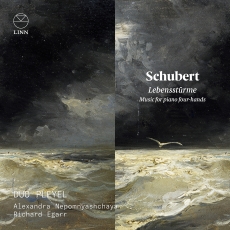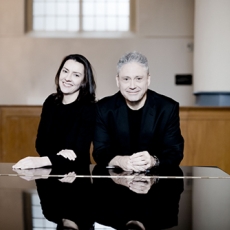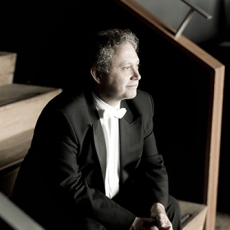Duo Pleyel - Schubert: Lebensstürme; Music for piano four-hands - Europadisc
With its unique combination of intimacy, a lyricism that combines joy with pain (often simultaneously), and a natural tendency to the expansive even within the most compact forms, it is no surprise that Schubert’s music so often provides a refuge for listeners and performers in troubled times. In recent years the period performance movement has helped to reveal still further the range of tender colours and textures of which Schubert was capable, particularly in the piano music. There are now numerous recordings of works on instruments of Schubert’s time, but this new release from the Linn label, a splendidly planned recital of some of his greatest pieces for piano four-hands, stands out for using a piano built twenty years after the composer’s death, a Pleyel from 1848. Appropriately enough, it’s played by the Duo Pleyel – Alexandra Nepomnyashchaya and Richard Egarr – and its bright yet beautifully balanced tones, played with a keen sense of rhythmic poise and lift, and with tasteful use of the sustaining pedal, illuminate the music’s textures to exquisite effect.
The disc opens with two of a clutch of piano-duet works that Schubert composed in 1818. The polonaise-like Rondo in D major makes a perfect curtain-raiser, its Biedermeier charm already combined with a feeling for the longer line and for effective contrasts, while the ambitious Sonata in B flat major shows Schubert flexing his expressive muscles in a larger format while still exuding the intimacy of a domestic setting. Both pieces are played with a marvellous understanding of the genre, imbued with a mixture of dance-like lilt and chamber-music rapport, most telling in the moments of carefully deployed rubato and Schubertian hesitation.
The Sonata in particular carries more than a hint of the turbulent times ahead, and these become readily apparent in the album’s centrepiece, the great F minor Fantasie: a masterpiece of the highest order not just in the piano duet genre but in the context of Schubert’s wider output. Building on the cyclic four-section of the 1822 ‘Wanderer’ Fantasie’, this is one of the great works of Schubert’s final year, and it is given a performance here that balances its almost symphonic ambitions with its close-knit intensity to telling effect. The Pleyel instrument makes up in incisiveness for what it lacks in sheer power when compared with a modern concert grand, and at Nepomnyashchaya and Egarr’s expertly chosen tempi the listener is swept away in the drama of it all: the aching beauty of the opening section, the jagged double-dotted figuration of the ‘slow movement’, the Beethovenian bustle of the extended ‘scherzo’, the inexorable return of the opening music, the build-up of tension in the fugue that follows, and the final devastating recall of the main theme. It’s almost impossible to imagine the decay of the final chord being as effective on a modern instrument.
Two more works from 1828 round out the disc: the Rondo in A major and a piece with which it is often paired, the Allegro in A minor, given the subtitle ‘Lebensstürme’ (‘storms of life’) by Diabelli when it was eventually published twenty-two years later. However inauthentic it may be, it sums up the work’s tempestuous character, a twelve-minute tone-poem which once again seems to be crying out orchestral clothes, yet whose intensely personal nature can really only be captured when played by two players at one instrument. What Schubert scholar John Reed referred to as this piece’s ‘Promethean spirit’ is unerringly evoked by the Duo Pleyel, fully justifying their choice of instrument and ensuring that the disc as a whole ends with an exceptionally powerful punch. The programme as a whole, recorded back in February 2019, seems almost tailor-made for our present times, offering both an outlet for pent-up feelings and the prospect of hope beyond suffering. Two centuries on, Schubert’s voice is as relevant and as much needed as ever.



